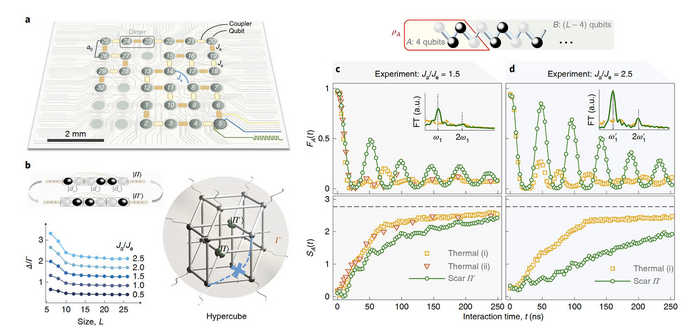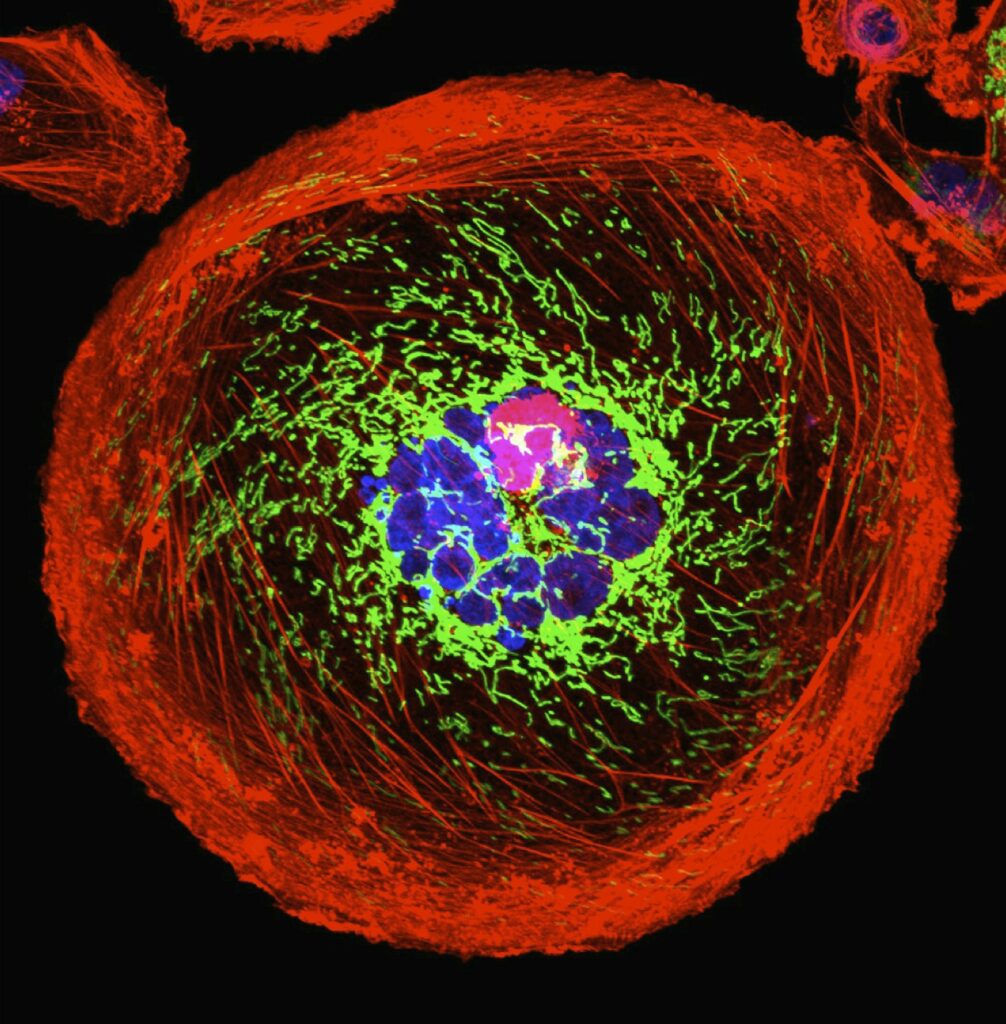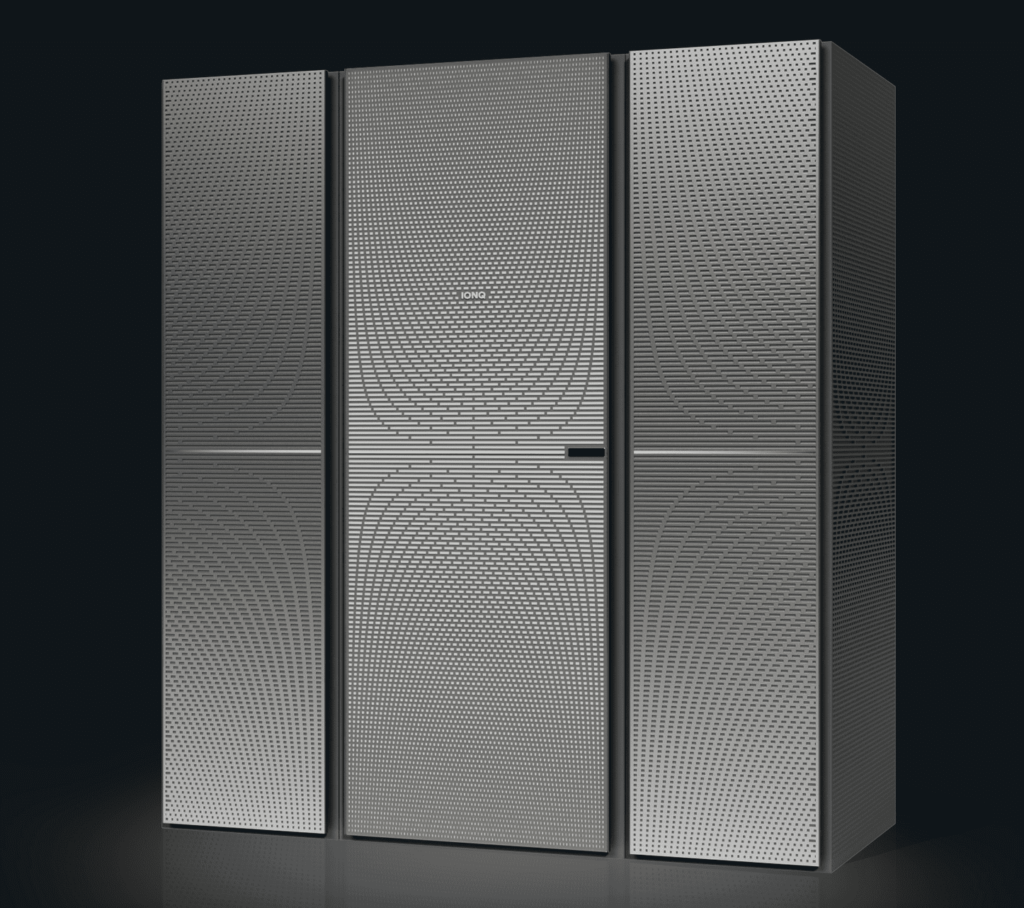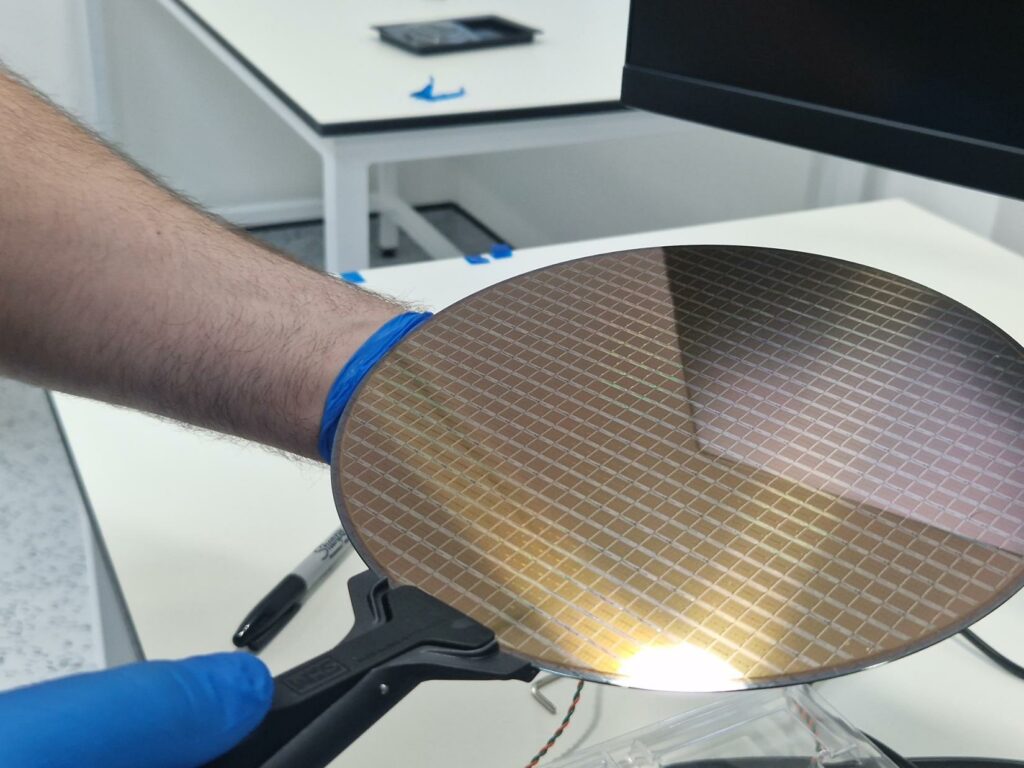Insider Brief
- A research team demonstrated large numbers of interacting qubits can maintain coherence for an unprecedentedly long time, in a programmable, solid state superconducting processor.
- “Such exotic quantum states offer the appealing possibility of realizing extensive multipartite entanglement for a variety of applications in quantum information science and technology to achieve high processing speed and low power consumption.”
- The team included members from Arizona State University and Zhejiang University in China, along with two theorists from the United Kingdom.
- Image: Arizona State University, Zhejiang University
PRESS RELEASE — Researchers reportedly demonstrate for the first time that large numbers of quantum bits, or qubits, can be tuned to interact with each other while maintaining coherence for an unprecedentedly long time, in a programmable, solid state superconducting processor. The team included members from Arizona State University and Zhejiang University in China, along with two theorists from the United Kingdom.
Previously, this was only possible in Rydberg atom systems.
In a paper to be published on Thursday, Oct. 13 in Nature Physics, ASU Regents Professor Ying-Cheng Lai, his former ASU doctoral student Lei Ying and experimentalist Haohua Wang, both professors at Zhejiang University in China, have demonstrated a “first look” at the emergence of quantum many-body scarring (QMBS) states as a robust mechanism for maintaining coherence among interacting qubits. Such exotic quantum states offer the appealing possibility of realizing extensive multipartite entanglement for a variety of applications in quantum information science and technology to achieve high processing speed and low power consumption.
“QMBS states possess the intrinsic and generic capability of multipartite entanglement, making them extremely appealing to applications such as quantum sensing and metrology,” explained Ying.

Classical, or binary computing relies on transistors – which can represent only the “1” or the “0” at a single time. In quantum computing, qubits can represent both 0 and 1 simultaneously, which can exponentially accelerate computing processes.
“In quantum information science and technology, it is often necessary to assemble a large number of fundamental information-processing units – qubits – together,” explained Lai. “For applications such as quantum computing, maintaining a high degree of coherence or quantum entanglement among the qubits is essential.
“However, the inevitable interactions among the qubits and environmental noise can ruin the coherence in a very short time — within about ten nanoseconds. This is because many interacting qubits constitute a many-body system,” said Lai.
Key to the research is insight about delaying thermalization to maintain coherence, considered a critical research goal in quantum computing.
“From basic physics, we know that in a system of many interacting particles, for example, molecules in a closed volume, the process of thermalization will arise. The scrambling among many qubits will invariably result in quantum thermalization – the process described by the so-called Eigenstate Thermalization Hypothesis, which will destroy the coherence among the qubits,” said Lai.
According to Lai, the findings moving quantum computing forward will have applications in cryptology, secure communications and cybersecurity, among other technologies.
Collaborators from the School of Physics and Astronomy, University of Leeds, Leeds, UK, include Jean-Yves Desaules and Zlatko Papić.
Dr. Hekang Li fabricated the device at Zhejiang University. Other collaborators from Zhejiang University, Hangzhou, China, include Pengfei Zhang, Hang Dong, Jiachen Chen, Jinfeng Deng, Bobo Liu, Wenhui Ren, Yunyan Yao, Xu Zhang, Shibo Xu, Ke Wang, Feitong Jin, Xuhao Zhu, and Chao Song.
Additional contributors include Liangtian Zhao and Jie Hao from the Institute of Automation, Chinese Academy of Sciences, Beijing, China and Fangli Liu from QuEra Computing, Boston, MA
If you found this article to be informative, you can explore more current quantum news here, exclusives, interviews, and podcasts.
Source: EurekAlert




















